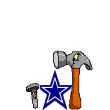- Messages
- 79,281
- Reaction score
- 45,652

Posted by Mike Florio on March 21, 2010 7:45 PM ET
We've heard from multiple league insiders who agree with our assessment that the current unity among NFL owners is fleeting, and largely confined to one issue: squeezing the players into taking less money.
As to the issue of owners sharing the money that their teams generate, the potential for discord remains. Indeed, four years ago we believed that, absent a comprehensive solution, the NFL possibly could split into two leagues -- one made up of teams willing to share every dollar and another composed of teams with an "every man for himself" mentality.
Supplemental revenue sharing, the redistribution of wealth from teams making the most to teams making the least, has turned out to be a Band-Aid at best. Meanwhile, the traditional notions of sharing have been challenged over the past decade.
A league source tells us that, for example, the traditional 60-40 split of ticket money between home team and road team doesn't apply universally. Per the source, the Cowboys have finagled an exception for club seat revenue, apparently to help defray the costs of the North Texas Football Cathedral. Other teams have worked out similar deals, many of which transactions have received little or no publicity.
Bottom line? If the NFL plans to maintain competitive balance via a salary cap and a salary floor based on total football revenues, any new agreement must account for the fact that a formula based on total revenues will increase the labor costs for low-revenue teams. Absent a long-term answer to this specific problem, the situation will continue to create controversy every time a labor deal is due to be renewed, and it will only get worse as the gap in the revenues continues to grow.
In the interim, the challenge for the NFL will be to keep that percolating problem tightly under wraps. For the NFLPA, the mission is clear -- find a way to force this core issue to the surface sooner rather than later.
We've heard from multiple league insiders who agree with our assessment that the current unity among NFL owners is fleeting, and largely confined to one issue: squeezing the players into taking less money.
As to the issue of owners sharing the money that their teams generate, the potential for discord remains. Indeed, four years ago we believed that, absent a comprehensive solution, the NFL possibly could split into two leagues -- one made up of teams willing to share every dollar and another composed of teams with an "every man for himself" mentality.
Supplemental revenue sharing, the redistribution of wealth from teams making the most to teams making the least, has turned out to be a Band-Aid at best. Meanwhile, the traditional notions of sharing have been challenged over the past decade.
A league source tells us that, for example, the traditional 60-40 split of ticket money between home team and road team doesn't apply universally. Per the source, the Cowboys have finagled an exception for club seat revenue, apparently to help defray the costs of the North Texas Football Cathedral. Other teams have worked out similar deals, many of which transactions have received little or no publicity.
Bottom line? If the NFL plans to maintain competitive balance via a salary cap and a salary floor based on total football revenues, any new agreement must account for the fact that a formula based on total revenues will increase the labor costs for low-revenue teams. Absent a long-term answer to this specific problem, the situation will continue to create controversy every time a labor deal is due to be renewed, and it will only get worse as the gap in the revenues continues to grow.
In the interim, the challenge for the NFL will be to keep that percolating problem tightly under wraps. For the NFLPA, the mission is clear -- find a way to force this core issue to the surface sooner rather than later.




